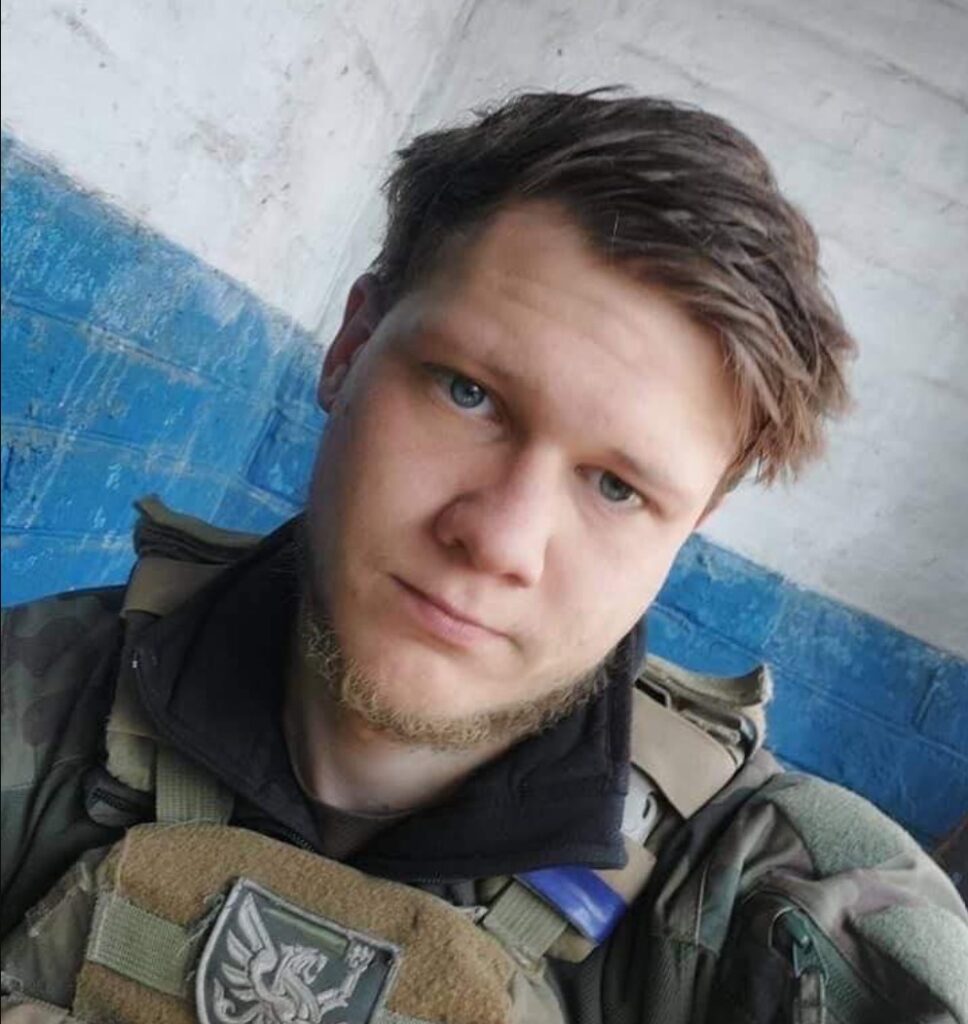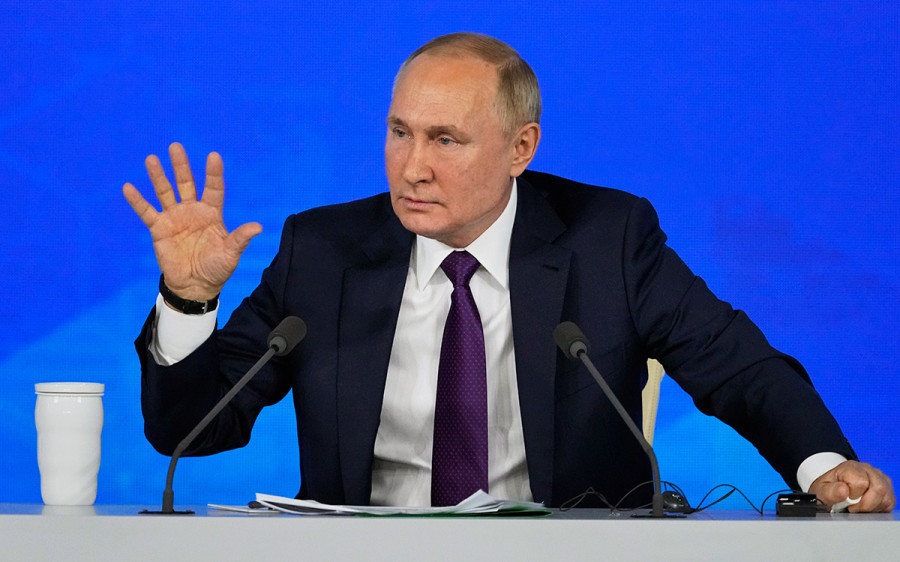On 16 May, Serhiy Kyslytsya, Ukraine’s First Deputy Foreign Minister, participated in the first direct peace talks between Ukrainian and Russian officials in over three years. The previous round had also taken place in Istanbul during the early weeks of Russia’s full-scale invasion. Since then, negotiations had stalled completely.
Vladimir Putin himself proposed Istanbul as the venue — yet notably did not attend, instead sending his confidant Vladimir Medinsky to lead the Russian delegation.
The talks, held behind closed doors and hosted by Türkiye, concluded with two concrete outcomes: completion of the largest prisoner exchange to date (1,000 for 1,000) and an agreement to meet again. However, no progress was made on a ceasefire.
What happened behind closed doors remained secret — until now.
Details emerged when Kyslytsya broke his silence in a revealing interview with Ukrainian broadcaster My-Ukrayina. His remarks, later summarized by Euromaidan Press and corroborated by reporting from The Economist and Reuters, exposed Russia’s shocking negotiation tactics and what they reveal about Putin’s real strategy.

Why this meeting was unlike any other
The meeting was unprecedented as the first direct diplomatic contact since early 2022, but Putin’s approach revealed even more. By proposing Istanbul — site of the stalled 2022 talks — while refusing to attend himself, Putin sent a clear message about control and conditions.
Russia’s most telling demand was excluding the United States entirely. Russian officials claimed they “didn’t have a mandate to talk if the US was in the room,” exposing their need to control both narrative and participants.
Türkiye handled the logistics professionally, providing interpreters in four languages and seating arrangements that maintained deliberate distance between the hostile delegations.
But Russia’s constraints were immediately apparent.
“This was an experienced delegation, but they had no mandate to move even one step left or right,” Kyslytsya observed. “They rigidly followed the directives they received.”
Most revealing was their categorical rejection of Ukraine’s core demand: “Several times during negotiations they said: ‘An unconditional ceasefire is categorically unacceptable,'” Kyslytsya recalled.
“I don’t believe their instructions included any option to reach an agreement with Ukraine on a ceasefire,” he concluded.
“Maybe you’ll lose more loved ones” – Russia’s personal threats
From the opening moments, the Russian delegation adopted what Kyslytsya described as a campaign of psychological pressure designed not to negotiate, but to destabilize their Ukrainian counterparts.
“It was all part of the pressure campaign — to provoke, to insult, to break our composure,” he said.
The atmosphere in the room was described as deliberately hostile. Russian delegates reportedly used aggressive interruptions, historical revisionism, and calculated provocations to keep their Ukrainian counterparts off-balance.
The most chilling moment came when Medinsky reportedly warned:
“Maybe some of those sitting here at this table will lose more of their loved ones. Russia is prepared to fight forever.”
For Kyslytsya, whose nephew died defending Ukraine, the threat was deeply personal. The targeting of family members represented a crossing of diplomatic red lines that shocked even experienced negotiators.

But the psychological warfare extended beyond personal threats. The Russian delegation systematically attempted to deny Ukrainian identity itself, framing the conflict in ways that would erase Ukraine’s sovereignty and national legitimacy.
At one point, the Russian side declared:
“This war… it’s basically just Russians killing Russians. With some nuances.”
“They tell you: ‘You’re not Ukrainian, you’re Russian,'” Kyslytsya recounted. “It was not just disrespectful; it was dehumanizing.”
This denial of Ukrainian nationhood wasn’t merely rhetorical — it represented a core element of Russia’s justification for the invasion.

Russia’s “detached from reality” territorial demands
Russia’s verbal threats were matched by territorial ultimatums that made meaningful negotiation impossible. According to both Kyslytsya and external reporting, Russia demanded Ukraine withdraw from all of Donetsk, Luhansk, Kherson, and Zaporizhzhia — including areas Ukraine still controls.
Medinsky reportedly invoked historical precedent:
“We fought Sweden for 21 years. How long are you ready to fight?”
The Russian delegation also warned that if Ukraine rejected current demands, “next time we’ll come for six or even eight regions instead of four.”
One Reuters source called the demands “detached from reality,” while Ukrainian officials described them as Russia’s “minimum requirement.”
“These weren’t negotiations,” Kyslytsya concluded. “These were pressure tests.”

The surprising reason Russia didn’t walk out
Despite their hostility and impossible demands, the Russian delegation never walked out. To Kyslytsya, this was the most telling aspect of the entire encounter.
“They couldn’t afford to walk out. They needed to come away with something.”
Russia had initially hoped to frame the talks as a continuation of the 2022 Istanbul negotiations. When Ukraine refused this framing, Russia’s narrative strategy collapsed—yet they stayed.
Kyslytsya believes this revealed Russia’s need to signal to the United States that they remained diplomatically engaged, even while excluding American participation from the talks.
“They live in a world of illusions. Of greatness, of control, of denial,” he said.
Even Medinsky’s direct access to Putin, Kyslytsya argued, meant little in practice.
“Access and courage are not the same thing. You don’t report reality to a dictator. You report a version of events that flatters power.”
What this really means for Ukraine war
While the prisoner exchange brought 1,000 Ukrainians home — a meaningful humanitarian victory — no broader diplomatic progress emerged. No timeline was set for future summits, and no framework established for de-escalation or a future ceasefire.
Türkiye managed the logistics professionally, providing interpreters in four languages and maintaining careful neutrality. But Russia’s insistence on excluding American participation exposed the process’s fundamental constraint.
“This is a dictatorship,” Kyslytsya observed. “There are no councils or parliaments. Everything is in the hands of one man.”
That man is Vladimir Putin. And until he enters the room himself, substantive peace negotiations remain impossible.

The hidden truth about Putin’s strategy
The Istanbul talks produced no diplomatic breakthrough, but they revealed something crucial about Russia’s position under pressure.
The combination of personal threats and rigid demands, paired with an unwillingness to actually leave the negotiating table, exposed a regime trying to project strength while managing serious constraints.
The bottom line: Putin’s delegation stayed seated even when their objectives failed — potentially revealing more about Russian limitations than any formal diplomatic outcome.



